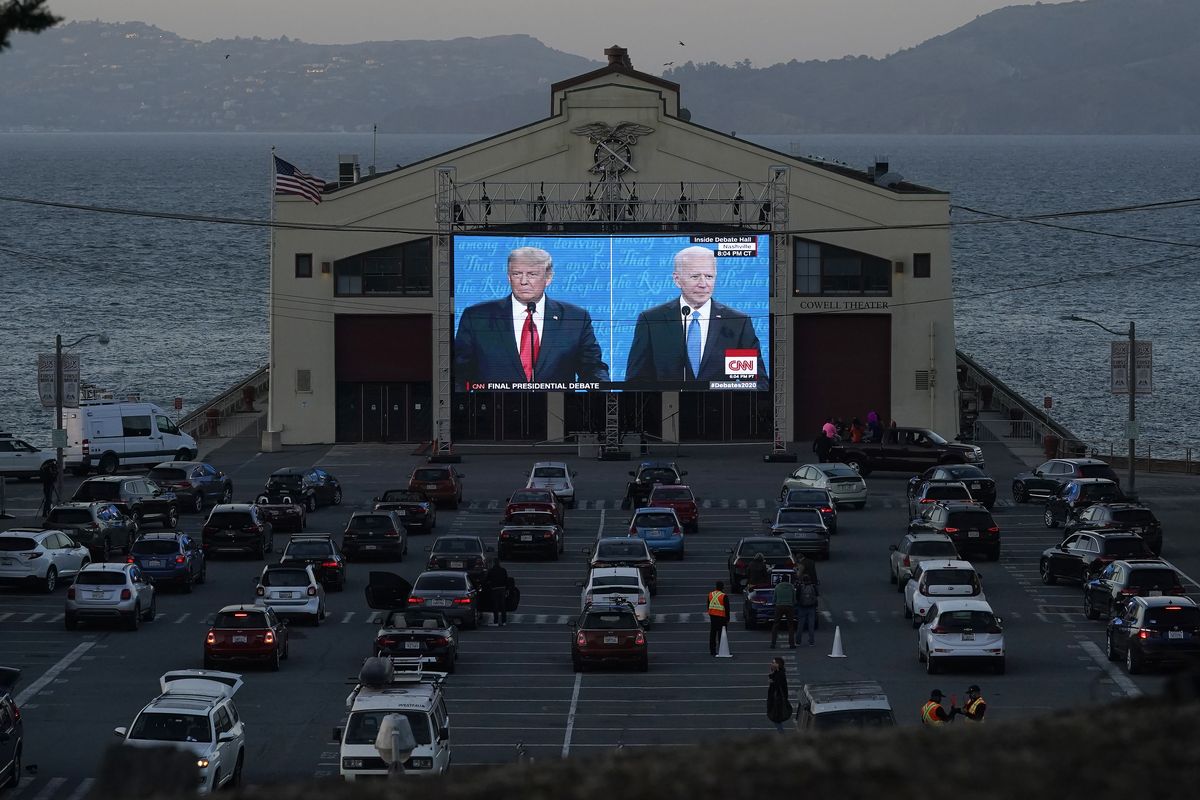How do we heal? History shows it will take consensus-building leadership, experts say

An acrimonious American presidential election isn’t anything new, scholars are quick to point out.
There’s the contest in 2000 that ultimately was decided by the U.S. Supreme Court. Before that, the 1876 election actually involved the withdrawal of federal troops from the antebellum South in an attempt to bind the nation’s post-Civil War wounds and settle a razor-thin victory margin.
The republic survived both times, and through many other close contests. While the deep divisions laid bare in the race between President Donald Trump and Joe Biden seem insurmountable, there is a path forward, experts say.
“Where reconciliation comes from is when you have people in charge who not only broaden their base, but thinking of themselves as willing to kind of think of big ideas,” said Margaret O’Mara, Howard and Frances Keller Endowed Professor of American History at the University of Washington.
O’Mara draws a clear line between this election and the first of Franklin Delano Roosevelt’s victories at the outset of the Great Depression. The New York Democrat quickly worked to reach a broader cross-section of voters, ultimately receiving support for his New Deal programs in Congress.
That led to one of the most lopsided presidential elections in history, with Roosevelt taking all but eight electoral votes in his 1936 re-election bid.
What it will take to heal a nation, O’Mara said, is a president willing to reach Americans who didn’t vote for him. It’s a pitch Biden has made frequently from the stump, in contrast to Trump’s leadership style, which has been to vilify areas of the country run by members of the opposing party.
“It would require him to govern quite differently,” O’Mara said of Trump. “To date, his winning strategy, his political strategy has been similar to his business strategy. Break the rules, take no prisoners.”
Michael Conlin, a professor of history at Eastern Washington University, said it’s common for voters who support a candidate who loses an election to feel as though the country is moving on without them. It’s a consequence of our electoral system, he said, which differs from other democracies because of its winner-take-all structure.
“There’s a lot of good political science that it makes citizens less satisfied with the government,” he said.
Trying to incorporate the policies and positions of the party that lost can go a long way to helping alleviate that feeling. It’s part of the reason why, after emerging victorious from the contentious 2000 election, George W. Bush began speaking about “compassionate conservatism” as a way to appeal to Democratic voters concerned about social safety net programs, O’Mara said.
“He realized it was a very fraught and contested election,” she said. “He hadn’t won the popular vote. His response was to really try and broaden his coalition.”
Aside from the goodwill of the winners, Conlin pointed out that the country’s long-standing institutions have often been called upon to quell partisan rancor following an election.
“I think our norms are surprisingly durable,” he said. “I’m very pleased to see that the military was not interested in being used as a prop.”
Still, several developments have changed the outlook for after the 2020 election. The courts, widely regarded as a nonpartisan arena, have become more politicized in recent years due in large part to changes in the way nominees are confirmed by the Senate. The Supreme Court’s decision in Bush v. Gore was also a turning point, Conlin said.
But O’Mara argued that the court had always been a political arm, a trait illustrated in Roosevelt’s attempt after his 1936 landslide election to increase the number of justices in an attempt to draw support for his social programs. The mere suggestion increased the high court’s acceptance of legislation he backed, she said.
“It reminds us that the Supreme Court has always been political to some degree,” O’Mara said, noting also that President William Howard Taft served as chief justice after his time in the White House.
Regardless of who emerges victorious after the ballots are counted, Conlin said it’s likely the nation is headed for another bout of turbulence before things can settle again.
“This is going to be a test of our institutions,” he said. “I’m hopeful they’re up to the task.”